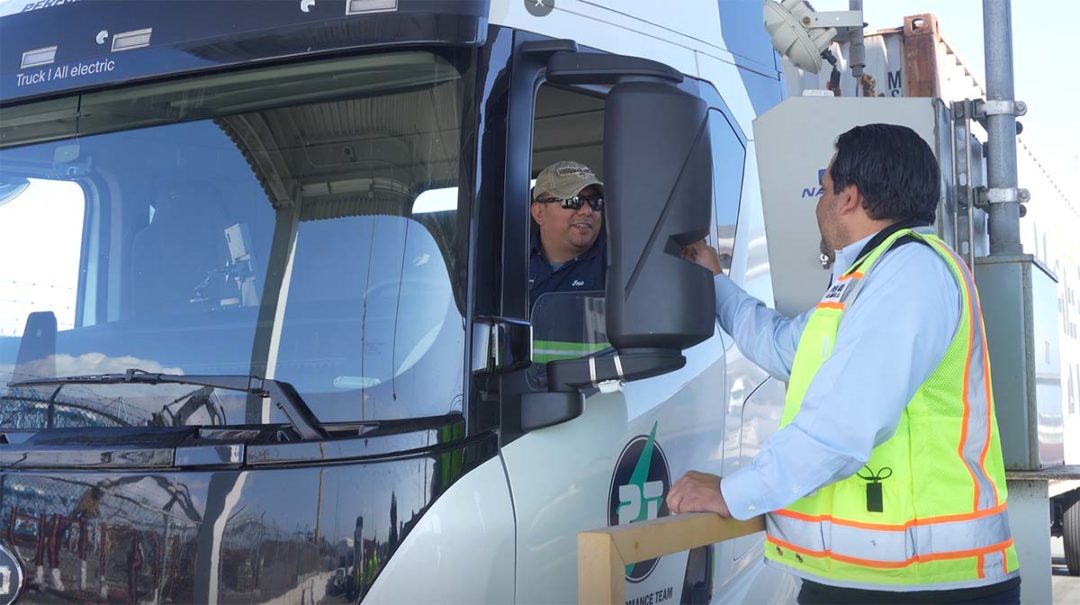Clean” trucks get extra incentives at Port of Los Angeles
Qualifying trucks can now use a dedicated express lane, speeding check-ins while minimizing energy consumption and improving efficiency.

There are many benefits to operating trucks powered by electric batteries, natural gas, and other zero-emissions technology, from cutting emissions and boosting vehicle reliability, to saving on the fuel bill and tapping into government rebates. Now some “green” truck operators can get one more benefit, something any kid in a lunch line or traveler in a TSA security queue could appreciate: permission to cut the line.
In December, vehicles registered in the Port of Los Angeles’ “Clean Truck Program” started accessing a dedicated lane at the port’s Pier 400 Los Angeles terminal. Trucks that qualify for the express lane are granted faster gate-in times, thereby minimizing energy consumption, promoting lower emissions, and improving operational efficiency, according to terminal operator APM Terminals. APM runs 64 maritime terminals worldwide and has set a target of running at net-zero carbon levels by 2040.
Some 1,200 trucks are now registered in L.A.’s Clean Truck Program, but that number is forecast to double by the end of 2024, as regulations will soon prohibit diesel trucks from registering in the California Air Resources Board (CARB) system and the state will get closer to its 2035 target date for 100% zero-emission drayage trucks.
Related Articles
Copyright ©2024. All Rights ReservedDesign, CMS, Hosting & Web Development :: ePublishing